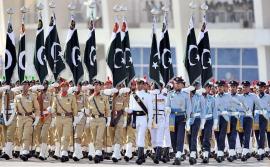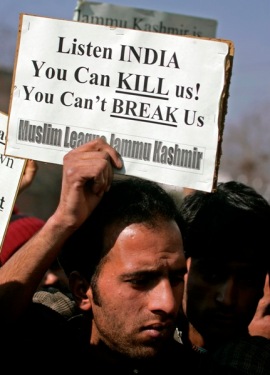












Rick Rozoff | Afghanistan is occupying center stage at the moment, but in the wings are complementary maneuvers to expand a string of new military bases and missile shield facilities throughout Eurasia and the Middle East.
The advanced Patriot theater anti-ballistic missile batteries in place or soon to be in Egypt, Georgia, Germany, Greece, Israel, Japan, Kuwait, the Netherlands, Poland, Qatar, Saudi Arabia, South Korea, Taiwan, Turkey and the United Arab Emirates describe an arc stretching from the Baltic Sea through Southeast Europe to the Eastern Mediterranean Sea and the Caucasus and beyond to East Asia. A semicircle that begins on Russia’s northwest and ends on China’s northeast.
Over the past decade the United States has steadily (though to much of the world imperceptibly) extended its military reach to most all parts of the world. From subordinating almost all of Europe to the North Atlantic Treaty Organization through the latter’s expansion into Eastern Europe, including the former Soviet Union, to arbitrarily setting up a regional command that takes in the African continent (and all but one of its 53 nations). From invading and establishing military bases in the Middle East and Central and South Asia to operating a satellite surveillance base in Australia and taking charge of seven military installations in South America. In the vacuum left in much of the world by the demise of the Cold War and the former bipolar world, the U.S. rushed in to insert its military in various parts of the world that had been off limits to it before.
And this while Washington cannot even credibly pretend that it is threatened by any other nation on earth.
It has employed a series of tactics to accomplish its objective of unchallenged international armed superiority, using an expanding NATO to build military partnerships not only throughout Europe but in the Caucasus, the Middle East, North and West Africa, Asia and Oceania as well as employing numerous bilateral and regional arrangements.
The pattern that has emerged is that of the U.S. shifting larger concentrations of troops from post-World War II bases in Europe and Japan to smaller, more dispersed forward basing locations south and east of Europe and progressively closer to Russia, Iran and China.
The ever-growing number of nations throughout the world being pulled into Washington’s military network serve three main purposes.
First, they provide air, troop and weapons transit and bases for wars like those against Yugoslavia, Afghanistan and Iraq, for naval operations that are in fact blockades by other names, and for regional surveillance.
Second, they supply troops and military equipment for deployments to war and post-conflict zones whenever and wherever required.
Last, allies and client states are incorporated into U.S. plans for an international missile shield that will put NATO nations and select allies under an impenetrable canopy of interceptors while other nations are susceptible to attack and deprived of the deterrent effect of being able to retaliate.
The degree to which these three components are being integrated is advancing rapidly. The war in Afghanistan is the major mechanism for forging a global U.S. military nexus and one which in turn provides the Pentagon the opportunity to obtain and operate bases from Southeast Europe to Central Asia.
One example that illustrates this global trend is Colombia. In early August the nation’s vice president announced that the first contingent of Colombian troops were to be deployed to serve under NATO command in Afghanistan. Armed forces from South America will be assigned to the North Atlantic bloc to fight a war in Asia. The announcement of the Colombian deployment came shortly after another: That the Pentagon would acquire seven new military bases in Colombia.
When the U.S. deploys Patriot missile batteries to that nation – on its borders with Venezuela and Ecuador – the triad will be complete.
Afghanistan is occupying center stage at the moment, but in the wings are complementary maneuvers to expand a string of new military bases and missile shield facilities throughout Eurasia and the Middle East.
On January 28 the British government will host a conference in London on Afghanistan that, in the words of what is identified as the UK Government’s Afghanistan website, will be co-hosted by Prime Minister Gordon Brown, Afghanistan’s President Karzai and United Nations Secretary General Ban Ki-moon and co-chaired by British Foreign Minister David Miliband, his outgoing Afghan counterpart Rangin Spanta, and UN Special Representative to Afghanistan, Kai Eide.
The site announces that “The international community are [sic] coming together to fully align military and civilian resources behind an Afghan-led political strategy.” [1]
The conference will also be attended by “foreign ministers from International Security Assistance Force partners, Afghanistan’s immediate neighbours and key regional player [sic].”
Public relations requirements dictate that concerns about the well-being of the Afghan people, “a stable and secure Afghanistan” and “regional cooperation” be mentioned, but the meeting will in effect be a war council, one that will be attended by the foreign ministers of scores of NATO and NATO partner states.
In the two days preceding the conference NATO’s Military Committee will meet at the Alliance’s headquarters in Brussels, Belgium. “Together with the Chiefs of Defence of all 28 NATO member states, 35 Chiefs of Defence of Partner countries and Troop Contributing Nations will also be present.” [2]
That is, top military commanders from 63 nations – almost a third of the world’s 192 countries – will gather at NATO Headquarters to discuss the next phase of the expanding war in South Asia and the bloc’s new Strategic Concept. Among those who will attend the two-day Military Committee meeting are General Stanley McChrystal, in charge of all U.S. and NATO troops in Afghanistan; Admiral James Stavridis, chief U.S. military commander in Europe and NATO’s Supreme Allied Commander; Pakistani Chief of the Army Staff General Ashfaq Parvez Kayani and Israeli Chief of General Staff Gabi Ashkenazi.
Former American secretary of state Madeleine Albright has been invited to speak about the Strategic Concept on behalf of the twelve-member Group of Experts she heads, whose task it is to promote NATO’s 21st century global doctrine.
The Brussels meeting and London conference highlight the centrality that the war in Afghanistan has for the West and for its international military enforcement mechanism, NATO.
During the past few months Washington has been assiduously recruiting troops from assorted NATO partnership program nations for the war in Afghanistan, including from Armenia, Bahrain, Bosnia, Colombia, Jordan, Moldova, Mongolia, Montenegro, Ukraine and other nations that had not previously provided contingents to serve under NATO in the South Asian war theater. Added to forces from all 28 NATO member states and from Partnership for Peace, Mediterranean Dialogue, Istanbul Cooperation Initiative, Adriatic Charter and Contact Country programs, the Pentagon and NATO are assembling a coalition of over fifty nations for combat operations in Afghanistan.
Almost as many NATO partner nations as full member states have committed troops for the Afghanistan-Pakistan war: Afghanistan itself, Armenia, Azerbaijan, Australia, Austria, Bahrain, Colombia, Egypt, Finland, Georgia, Ireland, Jordan, Macedonia, Mongolia, Montenegro, New Zealand, Pakistan, Singapore, South Korea, Sweden, Ukraine and the United Arab Emirates.
The Afghan war zone is a colossal training ground for troops from around the world to gain wartime experience, to integrate armed forces from six continents under a unified command, and to test new weapons and weapons systems in real-life combat conditions.
Not only candidates for NATO membership but all nations in the world the U.S. has diplomatic and economic leverage over are being pressured to support the war in Afghanistan.
The American Forces Press Service featured a story last month about the NATO-led International Security Assistance Force’s Regional Command East which revealed: “In addition to…French forces, Polish forces are in charge of battle space, and the Czech Republic, Turkey and New Zealand manage provincial reconstruction teams. In addition, servicemembers and civilians from Egypt, Jordan and the United Arab Emirates work with the command, and South Korea runs a hospital in the region.”
With the acknowledgment that Egyptian forces are assigned to NATO’s Afghan war, it is now known that troops from all six populated continents are subordinated to NATO in one war theater. [3] Read more of this post
 ISLAMABAD: Renewed international pressure and growing realisation in New Delhi that the rapidly changing situation in Afghanistan could deprive it of its strategic leverage in the region has forced the sudden change of heart in India regarding ties with Pakistan, according to diplomats and analysts.
ISLAMABAD: Renewed international pressure and growing realisation in New Delhi that the rapidly changing situation in Afghanistan could deprive it of its strategic leverage in the region has forced the sudden change of heart in India regarding ties with Pakistan, according to diplomats and analysts.






















































































Recent Comments